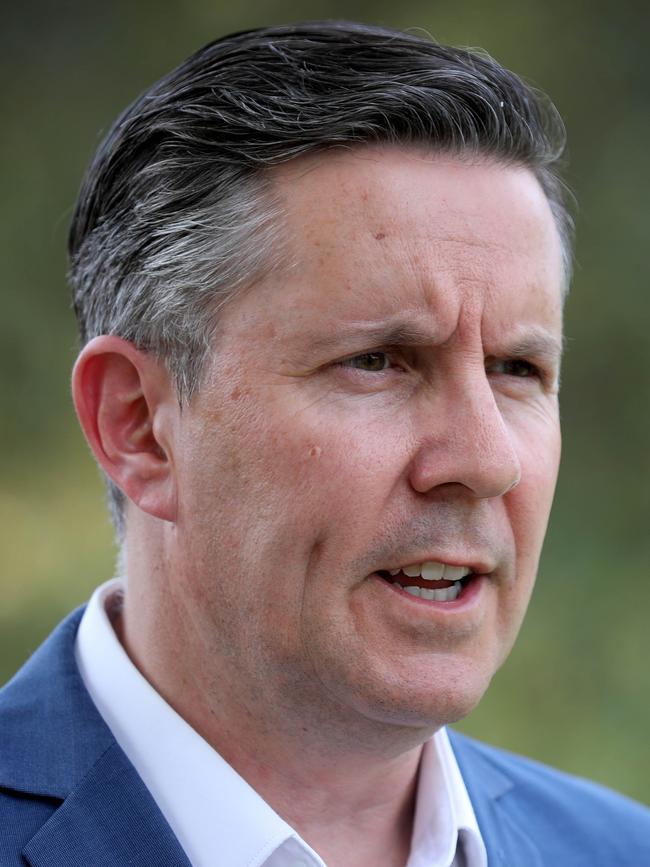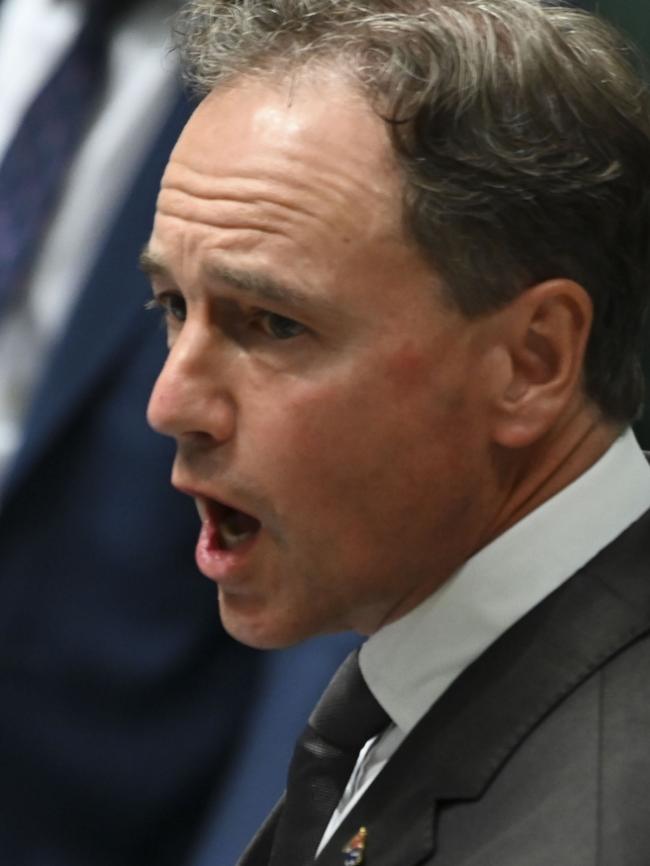Australia’s medicine subsidy system needs an urgent overhaul as patients face eight-year wait for lifesaving drugs
Australia’s medicine subsidy system is broken and cancer patients are being forced to rely on charity to access lifesaving treatments. Na’ama Carlin is one of them.
National
Don't miss out on the headlines from National. Followed categories will be added to My News.
Australians are waiting more than eight years to get access to subsidised lifesaving medicines, despite many already being available to patients in other countries.
The crisis has forced patients to raid their superannuation and rely on charity to fund their health care.
Doctors have warned Australian patients are dying earlier than they should because of the delays, with health consumer groups calling on the federal government and Labor Party to commit to address the issue.
Leading haematologist Professor Andrew Spencer told a parliamentary inquiry the survival of Australian patients with multiple myeloma was half that of patients overseas because our access to drugs was so slow.
“I could send someone to Greece three years ago to get daratumumab that I couldn’t give to my patient in Melbourne … we consider ourselves to be a First World nation, but we have Second World nation access to drugs,” Prof Spencer said.
Patients with metastatic bowel cancer have been waiting since 2014 for a subsidy for the treatment Stivraga.
Bowel Cancer Australia CEO Julien Wiggins said another life-extending medication took more than six years and a record eight submissions before being listed on the PBS as a subsidised treatment.
Last year, pharmaceutical company Roche withdrew a key cancer treatment Avastin from the drug subsidy scheme after the government imposed a 60 per cent price cut.
“The whole system needs fundamental change,” Mr Wiggins said.
Bowel Cancer Australia wants drugs to be subsidised from the minute they win Therapeutic Goods Administration approval, and for price negotiations to take place once the real-world effectiveness of the drug is tested.
Breast Cancer Network Australia (BCNA) wants the government to fast-track funding for drugs already approved in other countries and said it is unfair people have to rely on charity or raid their superannuation to pay for medicines.
“These men and women they can’t wait, they don’t have time,” BCNA policy director Vicki Durston said.
Analysis by pharmaceutical industry lobby group Medicines Australia shows it takes on average 496 days for a cancer medicine and 528 days for a heart medicine to be subsidised once they have been registered for use.
In other developed nations, 60 per cent of medicines are reimbursed within six months of registration, compared with only 22 per cent in Australia.
“I don’t think that it is reasonable for any political party to say that their appointed, independent advisory body recommends a medicine to be safe, effective and cost-effective value for money – and we’re not going to pay for it,” Medicines Australian CEO Liz de Somer said.
Delays are not the only problem. The patient charge for subsidised medicines has also grown to $42.50 per script per month for general patients, making medicines unaffordable especially for those using multiple drugs.
When Labor was last in power, a budget cut delayed subsidies for eight medicines that were recommended for funding by the independent Pharmaceutical Benefits Advisory Committee (PBAC) until community outcry forced it to reverse the policy.
Even though the Coalition has subsidised every medicine the PBAC recommends, it has presided over massive bureaucratic delays in providing funding.
We asked both major parties to give an iron-clad commitment to subsidise every medicine recommended by PBAC and queried what they would do to speed up access to subsidised medicine.
A spokesperson for Health Minister Greg Hunt said the Coalition was “committed to continue to list all medicines approved by the medical expert panel, unlike Labor who stopped the medicines last time they were in power”.
“Under the Coalition government, we have more than halved the time taken to list a brand new medicine from 312 to 141 days,” the spokesman said.


Opposition health spokesman Mark Butler said it was a Labor Government that introduced the PBS and it would always protect and strengthen it.
“Under Labor every drug recommended by the Pharmaceutical Benefits Advisory Committee will be listed,” he said.
“It’s not good enough that under this Prime Minister, Australians have had to wait in some cases years to access lifesaving medicines on the PBS.”
More Coverage
Originally published as Australia’s medicine subsidy system needs an urgent overhaul as patients face eight-year wait for lifesaving drugs





